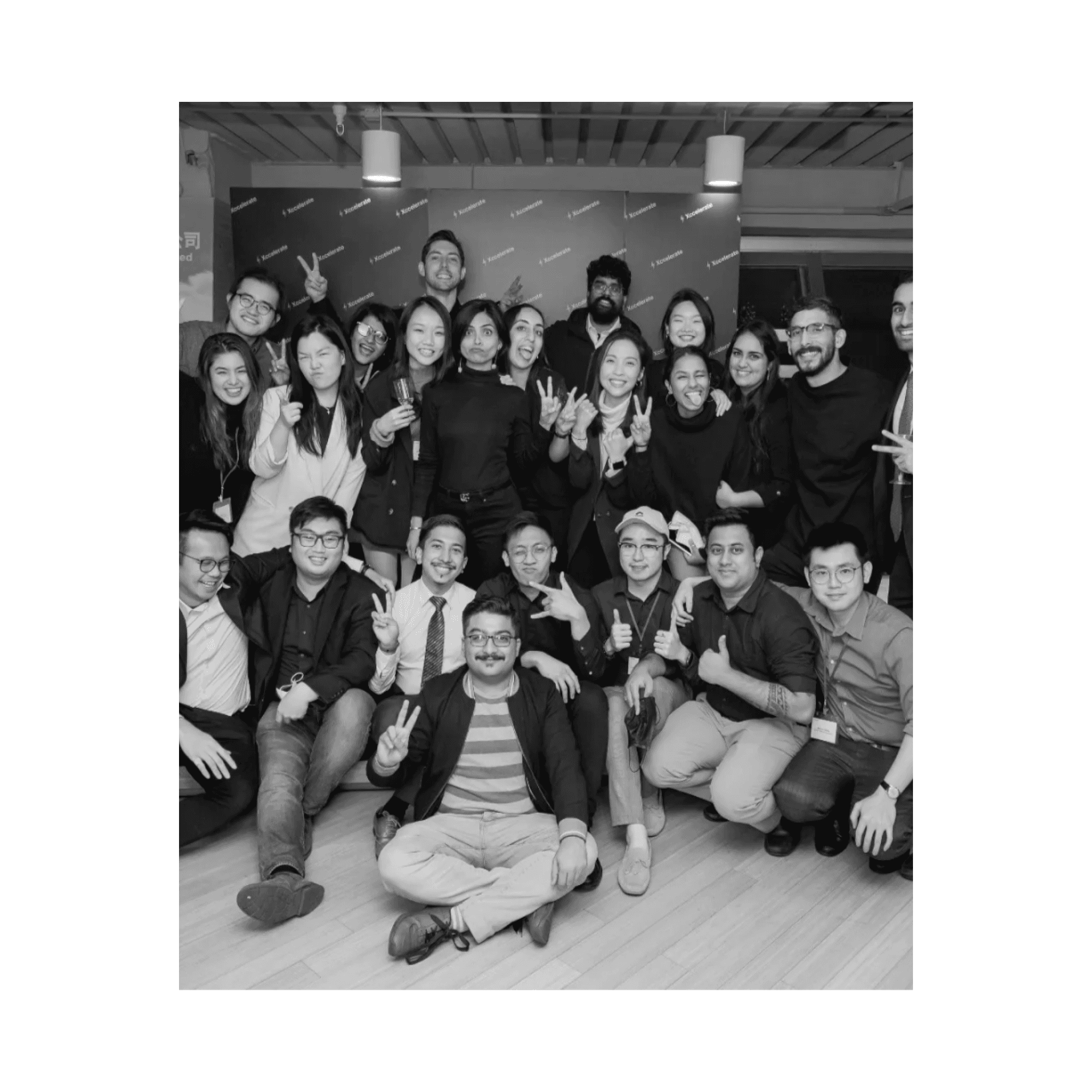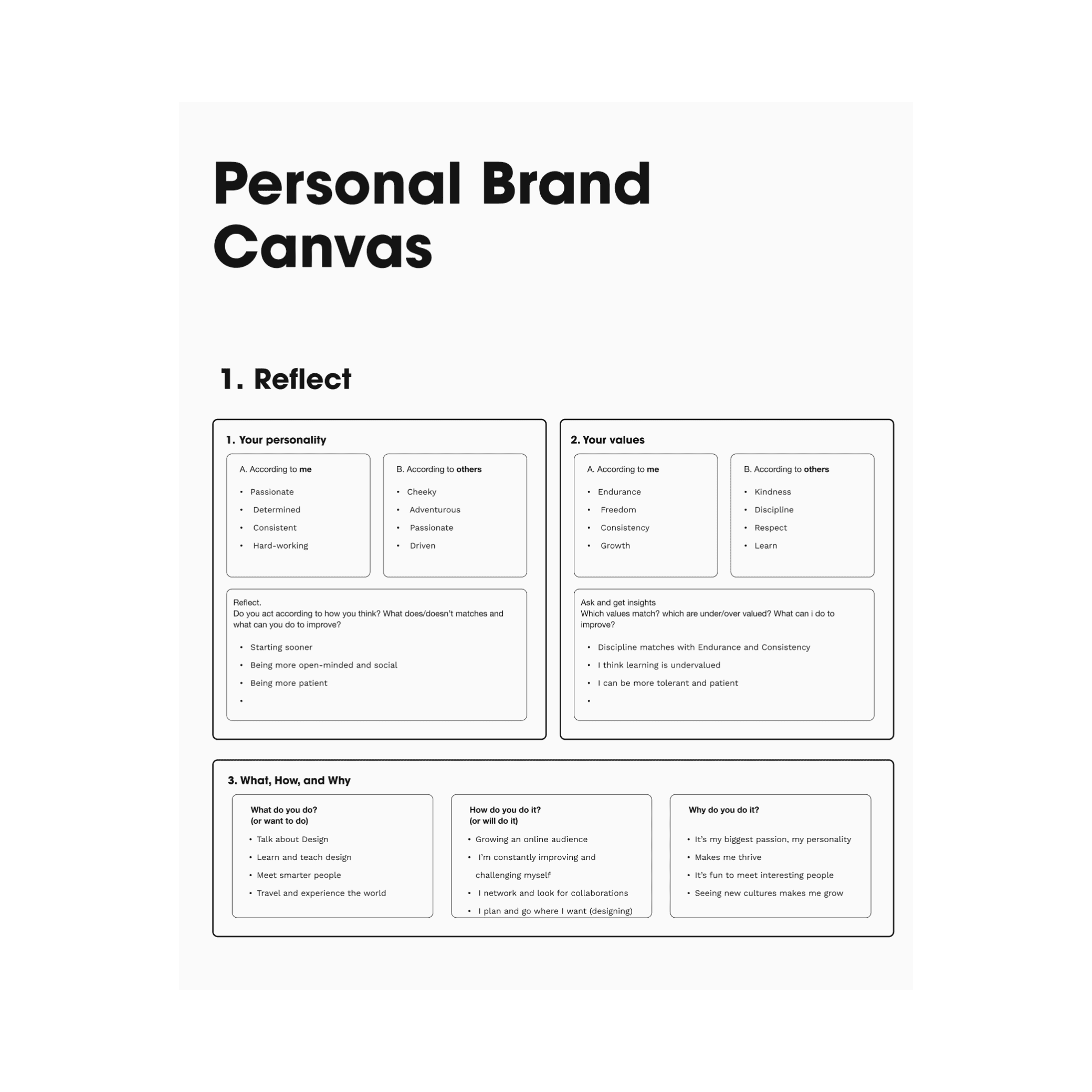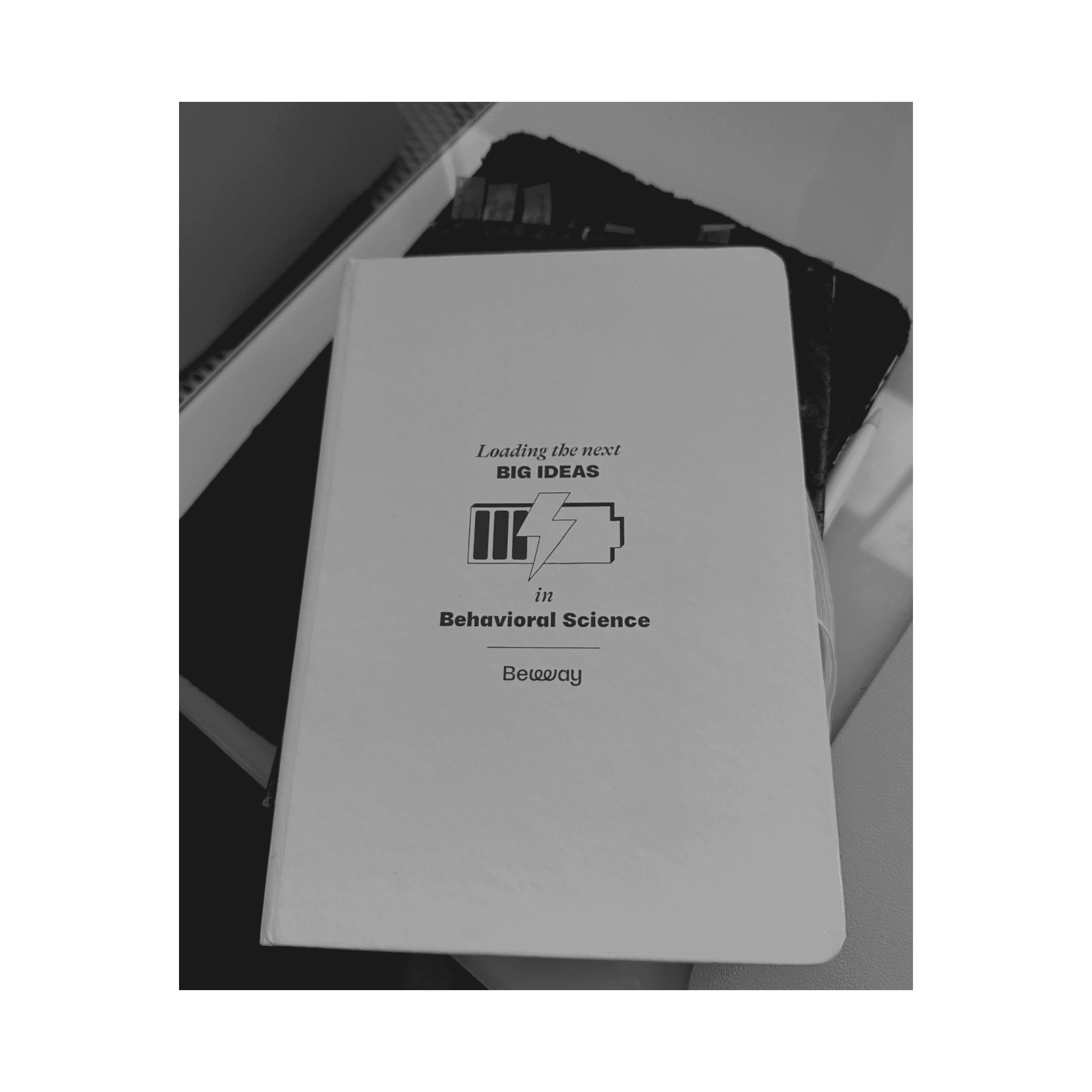Published
01 August, 2022
by
Kaleb Cardenas
One year designing platforms, shaping designers and pioneering in Web3
Xccelerate is revolutionising lifelong learning, leveraging technology and agile methodologies to empower mentors, mentees, and the next generation of talent. In this article, I'll share our journey navigating the evolving EdTech landscape, from legacy systems to the exciting possibilities of Web3.

A bit more than a year ago, I moved from a design consultancy to work at an EdTech platform. After six months in my new role, I reflected on what we accomplished as a team at Xccelerate. My article Designing designers for 21st-century challenges explains our framework and the influence we generate on our students.
Six months later, I realised how we have changed, pivoted and improved. It feels like a lifetime. My one-year milestone at Xccelerate enabled me to learn how to navigate a startup environment, grind in a bear market, and come back stronger with new ideas and insights. A lean and agile culture is essential to surpass these challenges; an outstanding team is critical to moving forward.
A lifelong learning journey
Learning is an inevitable process for any person. We are coded to develop skills; it’s rooted in our most profound laws of behaviour, from understanding the stars, reading animal prints on the ground and mastering agriculture.
Our present challenges and technological development are dramatically influencing the way we learn. Tools for remote collaboration like FigJam, Miro or Notion have improved significantly since the rise of COVID-19; a black swan event like this has reshaped how we work and our expectations from a job. At the same time, companies are demanding more ‘unicorn’ candidates that master multi-disciplinary requirements with imperative soft skills. The challenge is big; learners are in a huge dilemma.
How might we learn new skills with a fast-paced and demanding lifestyle?
The internet is filled with platforms and online courses to upskill. Yet, most people need a face-to-face touchpoint. After all, we are social animals. Universities and legacy educational systems are lagging and missing many opportunities for innovation. EdTech is revolutionising the way we can continue our lifelong learning journey. This process needs to be flexible and highly iterative. In other words, agile.
From legacy to agile education
Classrooms have evolved slowly in the past 100 years. Students sit in a room and try their best to understand content through presentations, exercises and discussions. An instructor is the knowledge owner and serves as an enabler to that information. That process has many flaws; it’s passive, dull and outdated in today’s world context.
Many theories about education innovation look back to our fundamental truths — Humans love to play. We learn with our hands, from our peers and by accomplishing goals. Technology empowers us to use our creativity; it offers many possibilities to create new ways to interact in a hyper-connected world.
Education and technology should go hand in hand; a combination of software, hardware and processes can create a formula for success in this industry. Yet, let’s not forget that the most fundamental part of the equation is the stakeholders involved in this engaging interaction.
Mentor and mentee
I’ve been a design lecturer for more than four years. In 2018, I started teaching remotely to industrial design students in Mexico. I facilitated my classes in Hong Kong through Zoom. It was no easy task; with 12 hours difference, I needed to start my lessons early or do a night session with the students. It became exhausting. However, sharing my experience and knowledge ‘from the future’ was gratifying. I learned that having a mentee’s mentality helps you create better learning experiences to be a good mentor.
My role at Xccelerate enables me to explore dualistic dynamic scenarios in Edtech. I serve as the lead UX mentor to a wide variety of customers. We position our students in some of the best tech companies in Asia through our job board and jam with like-minded people on Xccelerate Live. As a company, we’re fascinated with building new products and interactions to empower mentors and mentees to see each other as peers.
We are developing fun and engaging experiences to keep nurturing a lifelong learning culture on our platform. User research, experimentation, and design combined with software development is the formula we use to create a gamified experience for our users.
Companies are looking for talent to solve very complex problems. Learners want to shift their careers, grow as individuals and explore other opportunities. Combining these factors creates the correct settings to reinvent how people learn to earn.
A bright future for EdTech
The Web3 environment is a decentralised system that seeks to empower its users. It enables anyone to own a piece of the internet and make decisions that can be tracked on the blockchain. The transition from centralised organisations to community-based platforms is extremely powerful. The Web3 environment is growing fast; it’s the wild west, and nobody knows what it will become. However, the future belongs to the pioneers and creatives in this new network.
We are on the cusp of the next era of the internet as a catalyst for community transformation. It sounds utopian and could quickly turn into a dystopia. The reality is that this moment should be considered an opportunity.
The challenge is that nobody gets it fully! It is highly niched and uncertain. EdTech may be a driver to address this problem. Training platforms for Web3 enthusiasts are just the beginning. At Xccelerate, we see this as an opportunity to onboard a large spectrum of talent and create a medium where they can meet a network of exciting projects to build the future of decentralised networks.
Next steps
EdTech is already a multi-trillion dollar industry, and we believe Web3 technologies will multiply the possibilities for people to achieve purpose while having fun and creating value. Learning, training or upskilling is inevitable. For Xccelerate, this represents a huge responsibility that encourages us to thrive as designers and entrepreneurs.
One year in an EdTech platform during COVID times has taught me to be resilient and open to change. To have a vision but stay super flexible in the process. We are now looking to become one of the top Web3 training platforms to address this exciting challenge. We want to be pioneers, dream big and empower a new generation of talent.
We’re working on a new product, the Metaversity: Learn-Fi. It will leverage everything we know and highlight everything we still need to learn. Six months from today, I hope to write a new article on how we built it and achieved our goal. In the meantime, as a team, we’ll continue to discover, iterate and adapt.
If you want to learn more and connect with our project, please join our discord channel or contact me at kaleb.c@xccelerate.co.
Published
01 August, 2022
by
Kaleb Cardenas
One year designing platforms, shaping designers and pioneering in Web3
Xccelerate is revolutionising lifelong learning, leveraging technology and agile methodologies to empower mentors, mentees, and the next generation of talent. In this article, I'll share our journey navigating the evolving EdTech landscape, from legacy systems to the exciting possibilities of Web3.

A bit more than a year ago, I moved from a design consultancy to work at an EdTech platform. After six months in my new role, I reflected on what we accomplished as a team at Xccelerate. My article Designing designers for 21st-century challenges explains our framework and the influence we generate on our students.
Six months later, I realised how we have changed, pivoted and improved. It feels like a lifetime. My one-year milestone at Xccelerate enabled me to learn how to navigate a startup environment, grind in a bear market, and come back stronger with new ideas and insights. A lean and agile culture is essential to surpass these challenges; an outstanding team is critical to moving forward.
A lifelong learning journey
Learning is an inevitable process for any person. We are coded to develop skills; it’s rooted in our most profound laws of behaviour, from understanding the stars, reading animal prints on the ground and mastering agriculture.
Our present challenges and technological development are dramatically influencing the way we learn. Tools for remote collaboration like FigJam, Miro or Notion have improved significantly since the rise of COVID-19; a black swan event like this has reshaped how we work and our expectations from a job. At the same time, companies are demanding more ‘unicorn’ candidates that master multi-disciplinary requirements with imperative soft skills. The challenge is big; learners are in a huge dilemma.
How might we learn new skills with a fast-paced and demanding lifestyle?
The internet is filled with platforms and online courses to upskill. Yet, most people need a face-to-face touchpoint. After all, we are social animals. Universities and legacy educational systems are lagging and missing many opportunities for innovation. EdTech is revolutionising the way we can continue our lifelong learning journey. This process needs to be flexible and highly iterative. In other words, agile.
From legacy to agile education
Classrooms have evolved slowly in the past 100 years. Students sit in a room and try their best to understand content through presentations, exercises and discussions. An instructor is the knowledge owner and serves as an enabler to that information. That process has many flaws; it’s passive, dull and outdated in today’s world context.
Many theories about education innovation look back to our fundamental truths — Humans love to play. We learn with our hands, from our peers and by accomplishing goals. Technology empowers us to use our creativity; it offers many possibilities to create new ways to interact in a hyper-connected world.
Education and technology should go hand in hand; a combination of software, hardware and processes can create a formula for success in this industry. Yet, let’s not forget that the most fundamental part of the equation is the stakeholders involved in this engaging interaction.
Mentor and mentee
I’ve been a design lecturer for more than four years. In 2018, I started teaching remotely to industrial design students in Mexico. I facilitated my classes in Hong Kong through Zoom. It was no easy task; with 12 hours difference, I needed to start my lessons early or do a night session with the students. It became exhausting. However, sharing my experience and knowledge ‘from the future’ was gratifying. I learned that having a mentee’s mentality helps you create better learning experiences to be a good mentor.
My role at Xccelerate enables me to explore dualistic dynamic scenarios in Edtech. I serve as the lead UX mentor to a wide variety of customers. We position our students in some of the best tech companies in Asia through our job board and jam with like-minded people on Xccelerate Live. As a company, we’re fascinated with building new products and interactions to empower mentors and mentees to see each other as peers.
We are developing fun and engaging experiences to keep nurturing a lifelong learning culture on our platform. User research, experimentation, and design combined with software development is the formula we use to create a gamified experience for our users.
Companies are looking for talent to solve very complex problems. Learners want to shift their careers, grow as individuals and explore other opportunities. Combining these factors creates the correct settings to reinvent how people learn to earn.
A bright future for EdTech
The Web3 environment is a decentralised system that seeks to empower its users. It enables anyone to own a piece of the internet and make decisions that can be tracked on the blockchain. The transition from centralised organisations to community-based platforms is extremely powerful. The Web3 environment is growing fast; it’s the wild west, and nobody knows what it will become. However, the future belongs to the pioneers and creatives in this new network.
We are on the cusp of the next era of the internet as a catalyst for community transformation. It sounds utopian and could quickly turn into a dystopia. The reality is that this moment should be considered an opportunity.
The challenge is that nobody gets it fully! It is highly niched and uncertain. EdTech may be a driver to address this problem. Training platforms for Web3 enthusiasts are just the beginning. At Xccelerate, we see this as an opportunity to onboard a large spectrum of talent and create a medium where they can meet a network of exciting projects to build the future of decentralised networks.
Next steps
EdTech is already a multi-trillion dollar industry, and we believe Web3 technologies will multiply the possibilities for people to achieve purpose while having fun and creating value. Learning, training or upskilling is inevitable. For Xccelerate, this represents a huge responsibility that encourages us to thrive as designers and entrepreneurs.
One year in an EdTech platform during COVID times has taught me to be resilient and open to change. To have a vision but stay super flexible in the process. We are now looking to become one of the top Web3 training platforms to address this exciting challenge. We want to be pioneers, dream big and empower a new generation of talent.
We’re working on a new product, the Metaversity: Learn-Fi. It will leverage everything we know and highlight everything we still need to learn. Six months from today, I hope to write a new article on how we built it and achieved our goal. In the meantime, as a team, we’ll continue to discover, iterate and adapt.
If you want to learn more and connect with our project, please join our discord channel or contact me at kaleb.c@xccelerate.co.

